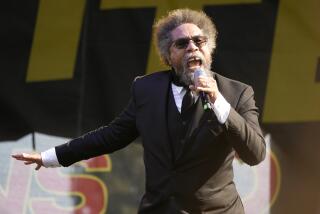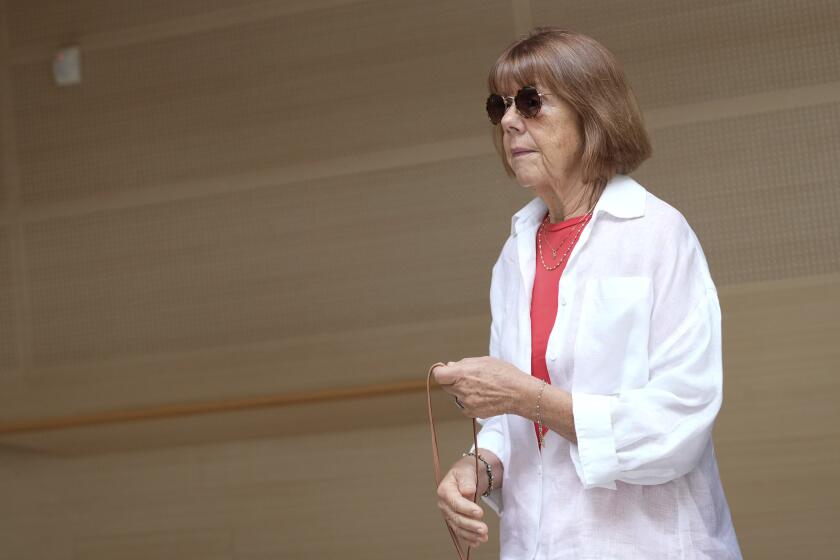GOP lacks a strong contender from the South
The Republican presidential field keeps growing, but something is still missing: a strong contender from the South, the party’s heartland.
An electoral lock on the Sun Belt helped the GOP win the presidency three times in the last quarter-century, with a Bush from Texas atop the ticket on each occasion. The region’s voters have also been influential in picking Republican nominees. Florida’s primary was the decisive contest in 2008 and will be an important battleground next year.
If someone fills the Southern slot for 2012 — Texas Gov. Rick Perry is seriously considering it — the shape of the nomination race could be drastically altered.
“The South is key to the Republican Party. The Republican Party can’t win any more without a strong Southern base,” said Ferrel Guillory, director of the Program on Public Life at the University of North Carolina at Chapel Hill. “It’s much more of a white Southerners party than it ever has been in its history.”
But the region’s strength for the GOP is also a weakness. To the extent that conservative Southerners determine the nominee, they could push the party away from more moderate swing voters who can decide the election.
“That’s the dilemma facing the Republican Party,” Guillory said. “The kind of candidate most favorable to the base might not be the strongest candidate in the general election.”
Some 2,000 activists at the Republican Leadership Conference, a three-day gathering in New Orleans last week, cheered appearances by most of the GOP presidential candidates, who are “much more conservative, as a group, than we’ve had in the past,” said Roger Villere, the Louisiana Republican Party chairman.
Like Republican voters generally, the activists are all over the map. Judy Cooley, 64, of Athens, Tenn., was for former Massachusetts Gov. Mitt Romney in 2008 but is supporting Michele Bachmann now. The Minnesota congresswoman’s social and fiscal conservatism, and status as the only woman in the race, make her particularly appealing to the retired phone company technician.
“We just have more conservatives in there,” Cooley, a self-described “tea party” supporter, said of the current field.
Many activists and party officials say it doesn’t necessarily matter where a candidate hails from. “Geography is not as important as conservative philosophy,” said Bill Armistead, the Alabama Republican Party chairman.
But style and cultural affinity can be important advantages, as Mike Huckabee demonstrated in a well-received speech here that included a lengthy allusion to Southeastern Conference college football. The former Arkansas governor won five Southern states in the 2008 primary season but has said he isn’t running again. Mississippi Gov. Haley Barbour also opted out.
The opening created by their absence comes at a time when many Republicans are not pleased with the field. About half of GOP voters are dissatisfied, according to an NBC News/Wall Street Journal survey released last week.
“I just feel like the South is looking for someone that we can get behind. We want a winner,” said Villere, the Louisiana Republican Party chairman.
Besides Romney, other prominent candidates include the Minnesotans, Bachmann and former Gov. Tim Pawlenty, and former Utah Gov. Jon Huntsman. Three candidates with Southern ties are competing: Herman Cain, a former businessman from Atlanta; Rep. Ron Paul of Texas; and Newt Gingrich, a former Georgia congressman who relocated years ago to the Washington area. None is regarded by party insiders as the future nominee.
A prominent member of the Bush dynasty, former Florida Gov. Jeb Bush, declined to run in 2012 (though his son, George P., addressed the New Orleans event). Other Southerners who were urged to make the run and decided against it: South Carolina Sen. Jim DeMint, Louisiana Gov. Bobby Jindal, Florida Sen. Marco Rubio and former Alabama Gov. Bob Riley.
The allure of an unsettled presidential contest appears to have given Huckabee second thoughts. In a brief interview, he said he wasn’t irrevocably out of presidential politics for the next four years. “Who knows what might happen? I don’t want to put myself in a box,” Huckabee said, while insisting he wasn’t trying to play games about a revived candidacy.
For now, at least, Southern eyes are on Perry. He initially rejected a 2012 candidacy, but after Barbour pulled out, he’s been reconsidering.
“A lot of people are saying Perry would be great,” said Gina Celentano, 49, an investor from Atlanta, who abandoned Gingrich after he criticized the House Republican Medicare voucher plan. She said she would like to know more about the Texas governor but favored him because “so many of the other candidates have at least one fatal flaw.”
The rise of the tea party and the outsized role that social conservatives play in early states would seem to provide an opening for Perry, who won reelection to a third term last year by running to the right of one of the state’s most popular Republicans, Sen. Kay Bailey Hutchison, in the GOP primary.
Perry would be a “formidable” contender in South Carolina, the second primary state and the portal to the South, Republican strategist Curt Anderson said. After that comes Florida, followed by other Southern contests.
Perry was among the first politicians to grasp the significance of the tea party movement, once suggesting, after a tea party rally, that Texans were so disgusted with Washington they might choose to secede from the union. His message as a presidential candidate would combine anti-establishment fervor with boasts about job growth in his home state, which has the third lowest unemployment rate of the 10 most populous states, after Pennsylvania and New York.
“I stand before you today as a disciplined, conservative Texan, a committed Republican and a proud American, united with you in the desire to restore our nation and revive the American dream,” Perry told the party activists Saturday, to scattered shouts of “Run, Rick, run!”
Regardless of the nominee, Republicans are virtually assured of carrying 11 Southern and border states, with almost half the electoral votes needed to win the presidency, according to analysts and polls. They might be best served with a nominee less identified with the area, suggested Emory University professor Merle Black.
“It’s probably better for the Republicans if they have someone who’s not from the stronghold,” he said. “If they could get someone from outside the South who could carry states beyond that and still carry the South, that’s what they’d be looking for.”
More to Read
Sign up for Essential California
The most important California stories and recommendations in your inbox every morning.
You may occasionally receive promotional content from the Los Angeles Times.










